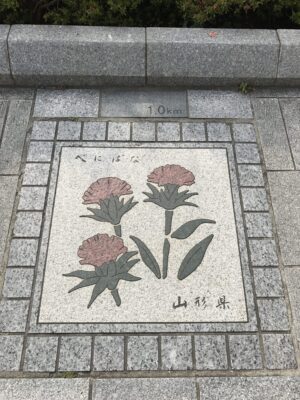Main content
From colonial-neoliberal-corporate climate science to climate justice science
The climate crisis poses “the greatest threat to human health in history“,[1-3] as well as to all of life on this planet. Yet, despite broad scientific consensus and public support for climate action, there has been persistent inaction from gov-ernments and corporations. What kind of climate science is needed to inform the needed transformation towards both climate stability and social justice?[4]
The climate crisis is the product of a social system where profit rules over the life of people and planet. This system legitimises a particular form of neoliberal climate science.[5] It is strongly disciplinary, giving primacy to the natural/geophysical sciences and, secondarily, to economics and law, as the ‘disciplines’ which can inform and develop solutions for decision-makers.[5,6] It builds on the idea of uninter-rupted progress through knowledge accumulation (predominantly from the global North) and the control and prediction of nature and populations.
This science envisions nature and society as separate, and humanity as a homogeneous entity ushering in a new geologic era (the Anthropocene). Climate inaction is naturalised as result-ing from the inherent limits of ‘human nature’ (‘psychological barriers’),[7] the economic costs of acting, or the absence of technological solutions.[8] This science prefers technocratic solutions that do not question the roots of the crisis: conservation and tree planting, educa-tion, green consumption and taxes, population reduction, and new tech-nologies (from renewables and carbon markets to geoengineering and carbon capture).[9-11] When citizens oppose such solutions and promote systemic changes, they are labelled as ignorant and immature ‘idealists’. Addressing the root causes of the climate crisis requires a different kind of science, which centres on climate justice through a transdisciplinary, decolonial praxis.
A transdisciplinary science with/for the people
Climate justice science is transdis-ciplinary, shifting from quantitative models to social dynamics and research-action. It embraces knowledge born out of everyday life and struggles,[12] integrating practice and critical reflec-tion (praxis).[4] It is relational and the result of co-creation by community leaders, scientists, artists, and their non-human environments. It is a science with/for the people.[13] It comes through nature-cultures: music, dance, illustra-tions, film, oral stories, jokes, planting, harvesting, and cooking. It creates new conceptual tools such as ecological debt, environmental colonialism, climate genocide and ecocide, intersectional-ity, body-territories, social ecologies, environmental, water and climate justice, agroecology, and food sover-eignty.[14] It recognises that information is not knowledge and knowledge is neither truth nor wisdom. It is politi-cised because, in matters of life over death, there is no neutrality possible.
A decolonial science for planetary justice
A climate justice science puts decolonial justice at the centre of decarbonisation transitions. Contrary to the discourse of a universal humanity, this science unmasks the ‘Anthro-Obscene’ of dramatic class, gender, racial and North-South inequalities at the root of the crisis.[15] Climatic heatwaves and floods are interconnected with police violence and toxic factories, part of the system of colonialism and racial capital-ism and its dramatic wealth, gender, racial, and North-South inequalities. Climate justice science shows that, for afro-indigenous populations, the apocalypse that we fear has already been here since colonisation, with enduring practices of dehumanisation intimately linked to the climate crisis. They deny the existence of different forms of knowing and being in the world; they justify the sacrifice zones of fossil fuel extraction, the walls that keep climate refugees out, and the repression of those who oppose them;[16] finally, they promote new forms of extractivism: large-scale renewable energy projects, pre-packaged ‘adaptation’ plans, and new mines for ‘green minerals’.[16-18]
Climate justice science has a role to play in acknowledging the role of science in enabling violence against colonised peoples and nature, and in identify-ing ways for restorative justice. This includes looking at access to scientific data and including marginalised voices, for example by establishing diverse and inclusive research teams.[6]
In addition, climate justice science reminds us that the climate cannot be described only through predictive computer models. It advances alter-native future visions which embrace the inevitable collapse of the colonial-capitalist system, opening possibilities to “healthier forms of collective exis-tence“.[19,20] Drawing on indigenous ancestral wisdoms, this science proposes that the only way to postpone the end of life on the planet is to learn to re-exist in interdependence with other humans and more-than-human nature. It accepts that not everything can be proven with facts, that we will never fully understand the depth and richness of our world. It breaks the dichotomy between the ‘mind’ and its ‘enlightened’ rationality, and the ‘heart’ and its emotions, propos-ing instead a ‘thinking-feeling’ that go together with a doing. It emphasises sacred resources, culturally significant plants and animals, communal health and spiritual well-being as measures of environmental health.[4] The body and the territory are one, the human lungs are connected to the forest lungs, our mothers with mother earth, and so the health of one reflects on the other.[21]
Countering colonial climate sci-ence in puerto rico: casa pueblo’s science + community + culture
Casa Pueblo, in the mountain town of Adjuntas, Puerto Rico, a Caribbean island colony for the last 500+ years, offers an example of this climate justice science. Opposing the colonial science that has experimented in our body-territories with Agent Orange (still shamelessly celebrated by some),[22] contraception pills and transgenics, and that argued we were too small and overpopulated and lacked enough resources to be sovereign,[23] Casa Pueblo has developed a model they call “science, community and culture” to promote eco-social justice and sustainability.[24]
Science means deeply understanding a problem through transdisciplinary collaborations and citizen participation. It is not only a source of knowledge but a tool to “plant hope and cultivate dreams“[25] for a decolonial, sustainable territory: science (ciencia) with a con-science (conciencia).[26] Culture grounds scientific knowledge with other forms of knowing and feeling, local experiences and identities. Radio, music, cinema, theatre and other visual arts are means to educate, unite and forge lasting ties. The organised community is the central motor of change, participating in the co-production, dissemination, and benefits of the science. Scientific study is thus combined with a vision of deep democracy: the people decide, no to extraction, yes to water, forests, and life. Casa Pueblo’s science-community-culture has crucially fought against the death projects of colonial-capitalist extractivism. They defeated a large-scale mining project in the 1980s-1990s, opposed a methane gas pipeline in the 2010s, and instead started with a ‘people’s forest’,[27] thereby challenging traditional scientific visions of forests as ecosystems without human engagement that are to be protected separately. They designed small-scale renewable energy systems for the region’s households and small businesses, which allowed them to respond to the months of electric outages after hurricane Maria in 2017, providing essential services such as refrigeration of insulin and respiratory machines, and thus saving countless lives. This response was embedded in their project Adjuntas Solar, aiming to turn the entire town into a solar-energy hub as a counter to the ‘energy colonialism’ of corporations and the government, which try to perpetuate fossil fuel dependency. The engineers of the solar systems are interlinked with the small business owners, environ-mental justice leaders, street artists, and filmmakers – a beneficial mix of science community and culture.
Conclusion
Climate justice science teaches us that the praxis of creating more equitable, ecological and decolonial worlds is a learning process full of uncertain-ties. We must do so through relational entanglement and complicity, meaning-ful responsibility and accountability, embracing complexity and uncertainty, and deep humility and generosity.[19] This is the path to ‘survive, love and create’ new imaginaries and practices of hope for the future, and to seek com-mon ground in our shared humanity and planetary ecology under a horizon of equality. May we walk this path together, and may no one be left behind.
References
- Introcaso D. Climate change is the greatest threat to human health in history. Health Affairs [Internet]. 2018 Dec 19 Available from: www.healthaffairs.org/do/10.1377/hblog20181218.278288/full/
- Haines A, Scheelbeek P. The health case for urgent action on climate change. BMJ. 2020 Mar 30;368:m1103. doi: 10.1136/bmj.m1103
- Jurgens E, Gotink, M. Climate change and health: the bad news and the good news. MTb. 2019 Oct;57(3):3-6
- Temper L, Del Bene D. Transforming knowledge creation for environmental and epistemic justice. Current Opinion in Environmental Sustainability. 2016 Jun;20:41-9
- Lohmann L. Toward a political economy of neoliberal climate science. In: Tyfield D, Lave R, Randalls S, et al, editors. The Routledge handbook of the political economy of science (pp. 305-316). London: Routledge; Trisos. p. 305-16
- Trisos CH, Auerbach J, Katti M, Decoloniality and anti-oppressive practices for a more ethical ecology. Nat Ecol Evol. 2021 Sep;5(9):1205-12. doi: 10.1038/s41559-021-01460-W
- On the limits of the psychological barriers approach, see Schmitt MT, Neufeld SD, Mackay CML, et al. The perils of explaining climate inaction in terms of psychological barriers. Journal of Social Issues. 2019 Nov 19;76(1);123-35
- Klein N. This changes Everything: capitalism vs. the climate. New York: Simon & Schuster; 2014. Pages 14 – 21.
- Ripple W, Wolf C, Newsome TM, et al. World scientists’ warning to humanity: a second notice. BioScience. 2017 Dec; 67(12),1026-8
- Scientists Warning [Internet]. Richmond: Scientists Warning Foundation; 2020. Available from: www.scientistswarning.org
- For a critique, see De Rosa P, Bluwstein, J. Why “Warning to Humanity” gets the socio-ecological crisis (and its solutions) wrong. Undisciplined Environments [Internet]. 2017 Nov 23. Available from: www.undisciplinedenvironments.org/2017/11/23/why-warning-to-humanity-gets-the-socio-ecological-crisis-and-its-solutions-wrong/
- De Sousa Santos B, Meneses MP, editors. Knowledges born in the struggle: constructing the epistemologies of the global south. New York: Routledge; 2019. 223 р.
- Science for the People [Internet]. Principles of unity. Available from: www.scienceforthepeople.org/mission/
- Martinez-Alier J, Anguelovski I, et al. Between activism and science: grassroots concepts for sustainability coined by environmental justice organizations. Journal of Political Ecology. 2014 Sep;21(1A):19-60
- Swyngedouw E (2019). The Anthropo (obs) cene. Antipode Editorial Collective (eds.), Keywords in Radical Geography: Antipode at 50, pp. 253-258
- Klein N. Let them drown: the violence of othering in a warming world. London Review of Books [Internet]. 2016 Jun 2;38(11). Available from: www.lrb.co.uk/the-paper/v38/n11/naomi-klein/let-them-drown
- Andreucci D, Zografos C. On the racist humanism of climate action. Undisciplined Environments [Internet]. 2021 Oct 5. Available from: www.undisciplinedenvironments.org/2021/10/05/on-the-racist-humanism-of-climate-action/
- On the critique of mainstream adaptation science, see also Morchain D. Rethinking the framing of climate change adaptation: discourses, policies, and practice. In: Klepp S, Chavez-Rodriguez L, editors. A critical approach to climate change adaptation. London: Routledge; 2018. p.55-74
- Stein S, Andreotti V, Suša R, Amsler S, Hunt D, Ahenakew C, Okano H, et al. (2020). Gesturing towards decolonial futures: Reflections on our learnings thus far. Nordic Journal of Comparative and International Education, 4(1), 43-65
- Whyte, K. P. (2018). Indigenous science (fiction) for the Anthropocene: Ancestral dystopias and fantasies of climate change crises. Environment and Planning E: Nature and Space, 1(1-2), 224-242
- Zaragocin S and Caretta M. A. (2021). Cuerpo-territorio: A decolonial feminist geographical method for the study of embodiment. Annals of the American Association of Geographers, 111(5), 1503-1518
- Wood TE, González G, Silver WL, et al. On the shoulders of giants: continuing the legacy of large-scale ecosystem manipulation experiments in Puerto Rico. Forests. 2019;10(3):210



















































